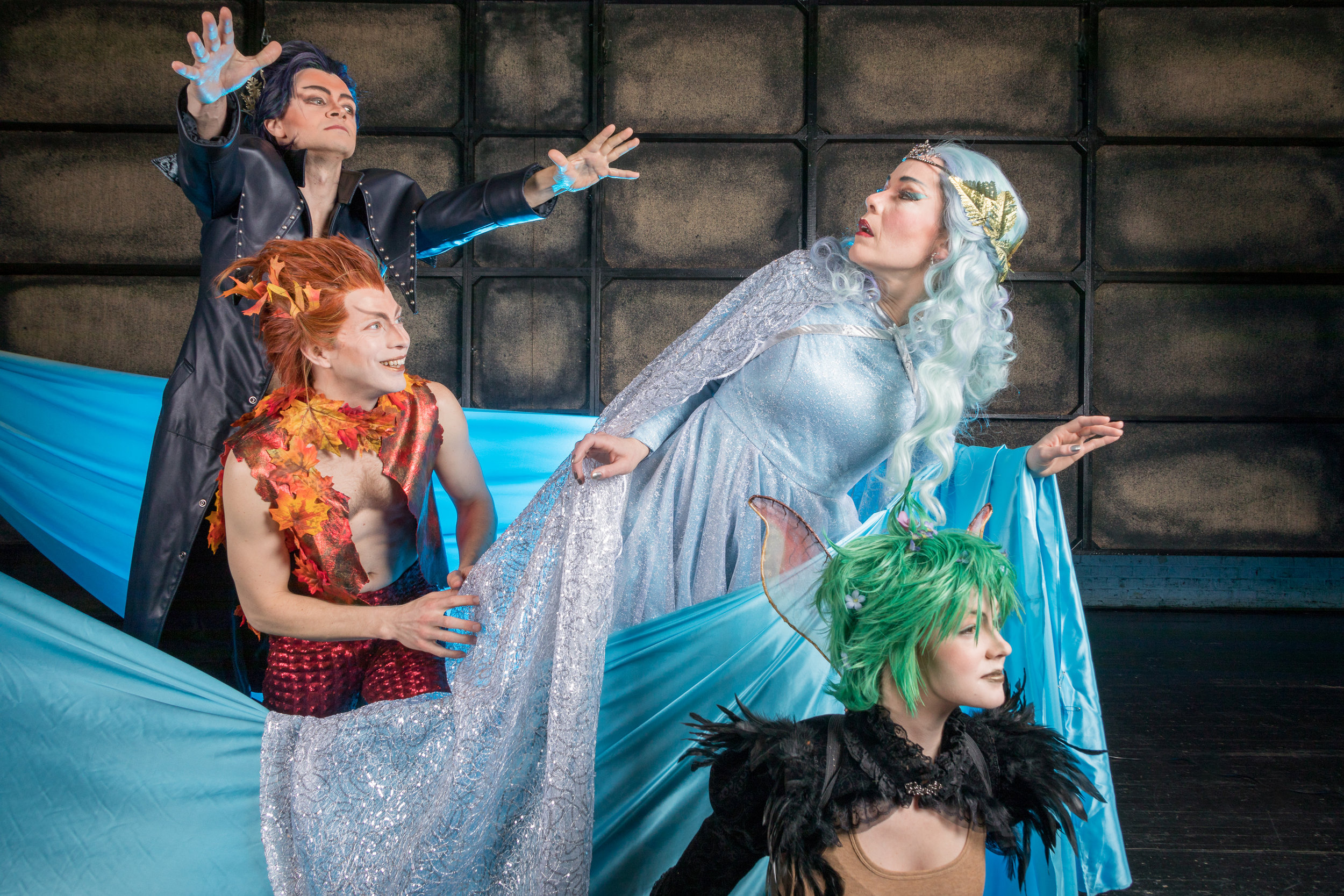I can think of three possible reasons that might give you concern over attending Virginia Opera’s production of A Midsummer Night’s Dream (1960) playing in Fairfax on Saturday and Sunday, February 17, 18 and in Richmond on February 23, 25? First, the opera is based on a play by Shakespeare and, while you enjoy opera, maybe you hate Shakespeare. Ok, you got me there. But do you hate all Shakespeare? “A Midsummer Night’s Dream” is one of Shakespeare’s comedies, and it is a very funny comedy. Furthermore, sweet love will lure you, and fairies with magic potions will attend your amusement, and all that's not well to begin, ends well. I love Shakespeare, but I think I’d like this one even if I found no favor with his other plays. Virginia Opera’s version is by composer British Benjamin Britten (1913-1976) with libretto by Peter Pears and Britten. The opera follows the play very closely but is shortened, mainly by eliminating act one where the main players and their relationships are introduced. It might be helpful to review the main players prior to the performance:
Queen of the fairies, Tytania is miffed at the
King of the fairies, Oberon, for trying to steal away a member of her troupe; their fighting spills over to humans, including
Lysander, an Athenian citizen who loves
Hermia, an Athenian citizen, and she loves him, but is legally betrothed to
Demetrius, an Athenian citizen, who wishes to marry her, but it’s complicated by
Helena, an Athenian citizen, who is in love with Demetrius, and all are at the hands of
Puck, a fairy, who is Oberon’s fixer assigned to apply a love potion
So, comedy is unleashed by a squabbling mature couple; two young male suitors and two pursued young women afflicted with romantic love; and a playful fixer who is prone to error. And for good measure, there is a group of actors who will put on a play within this play spoofing opera performers and composers. Dr. Glenn Winters, opera composer and Community Outreach Musical Director for Virginia Opera, has written a series of blog posts on this opera; I especially enjoyed his discussion of Britten’s spoofing of opera rather than actors, as in Shakespeare’s play.
Cast members Owen Willetts as Oberon, Morgan White as Puck, Heather Buck as Tytania, and Hannah Ramsbottom as Peaseblossom. Photo by Ben Schill Photography; courtesy of Virginia Opera.
Reason number two to be tempted to avoid the opera might be that Benjamin Britten is a modern composer and maybe you dislike modern classical music. Not to worry! This opera has some of Britten’s most listenable music, with melodies, vocal color, and an endearing children’s chorus. I listened to parts of a CD recording to be sure. I might encourage you someday to give modern atonal music a try, but this opera does not qualify as that test. If you enjoy opera, I think you will enjoy the music.
And the final reason you might approach A Midsummer Night’s Dream with caution is that it’s not just entertainment, it is also art. One of my favorite summations in all of literature is Puck’s final speech to end the play. He says that if you’ve been bothered by what you’ve seen, just pretend it was a dream. Indeed, the play is presented in dream-like fashion, but why this statement by Shakespeare? Some witty banter to close the play? Expressing genuine concern for your reaction to the play? Or something else? I feel the latter. To me the passage is included as a wink to acknowledge there was more afoot here than a comedy of errors, with advice to just let its effect be absorbed. There is an element of risk in viewing art; if the art is successful, you will be changed, for the better, in the viewing. Art, like dreams, also communicates on a subconscious level. Are you willing to dare? Perhaps Puck’s closing words can ease your worry:
“If we shadows have offended,
Think but this, and all is mended,
That you have but slumber’d here
While these visions did appear,
And this weak and idle theme,
No more yielding but a dream.”
And if you are only looking for entertainment, that works too. I will even add my own closing refrain for you:
Dreams and art are profit made
Though meaning lingers in the shade
Not instruct, more to unhinge
And free you from your Netflix binge

